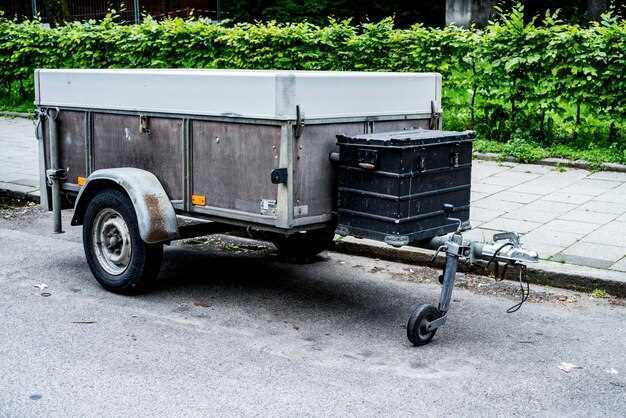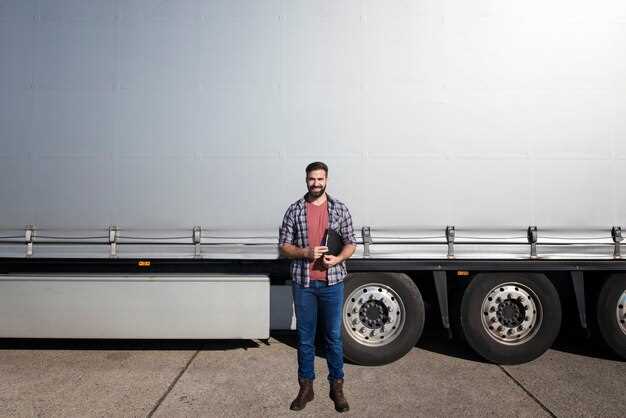
When it comes to transporting goods, a utility trailer is an invaluable asset for both personal and commercial use. These versatile trailers are designed to facilitate the movement of a wide range of materials, from landscaping supplies to recreational vehicles. However, selecting the right utility trailer to meet your unique requirements can be a daunting task, given the variety of options available on the market today.
Understanding your specific needs is the first step in making an informed decision. Factors such as the type of cargo you plan to haul, the frequency of use, and your vehicle’s towing capacity should all be considered before settling on a trailer. For instance, light-duty utility trailers are perfect for small loads, while heavier-duty models can accommodate larger items such as construction equipment or multiple ATVs.
Additionally, consider the features that will enhance your hauling experience. Some utility trailers come equipped with ramps, side rails, or adjustable tie-down points, which can significantly ease the loading and securing processes. By thoroughly assessing your needs and understanding the various features available, you can make a confident choice in selecting a utility trailer that will serve you effectively for years to come.
Understanding Different Types of Utility Trailers
When buying a utility trailer, it’s crucial to recognize the various types available, each designed for specific purposes and loads. Selecting the right trailer ensures efficiency and safety in transporting your cargo.
Open Utility Trailers are among the most common types. These trailers have no sides or tops, making them ideal for hauling large, bulky items such as landscaping materials, furniture, or equipment. Their open design facilitates easy loading and unloading, but it’s essential to secure the load properly to prevent shifting during transit.
Enclosed Utility Trailers provide more protection for your cargo. They feature solid walls and a roof, offering security against weather elements and theft. These trailers are suitable for transporting valuable items, such as tools or merchandise. Additionally, enclosed trailers often come with built-in shelving and storage options, making them versatile for various uses.
Dump Trailers are specialized utility trailers designed for easy unloading of materials. They feature a hydraulic lift system, which allows the trailer bed to tilt, dumping the contents quickly. This type is especially useful for construction sites or landscaping projects where frequent loading and unloading of debris or loose materials are necessary.
Deckover Trailers have a design that allows for additional height, making them perfect for hauling taller items such as vehicles or machinery. These trailers feature a flat deck that sits above the wheel wells, maximizing space. They are particularly beneficial for transporting larger items that would not fit in standard utility trailers.
Lastly, car hauler trailers are specifically designed for transporting vehicles. They usually come in either an open or enclosed style, equipped with features like ramps and tie-down points to secure the vehicles during transport. If you’re planning on buying a trailer for car transportation, consider the weight capacity and dimensions to ensure it suits your needs.
In conclusion, understanding the different types of utility trailers is essential for making an informed decision. Assess your specific needs, the types of cargo you’ll transport, and choose a trailer that aligns with your requirements for efficient and safe loading.
Assessing Weight Capacity and Size Requirements

When choosing a utility trailer, it is essential to assess both weight capacity and size requirements to ensure it meets your specific needs. Understanding these factors will prevent overloading and ensure safe transportation.
Start by determining the maximum weight you plan to carry. This includes the weight of the cargo as well as any additional equipment. Most utility trailers have a Gross Vehicle Weight Rating (GVWR), which indicates the maximum safe weight they can carry. Follow these steps:
- Calculate the total weight of the items you intend to transport.
- Consider the weight of any additional tools or equipment that will be transported.
- Ensure that the combined weight does not exceed the trailer’s GVWR.
In addition to weight capacity, the size of the trailer is crucial. The dimensions of the trailer should be appropriate for your hauling needs, whether for landscaping, construction, or personal use. You need to evaluate:
- Length: Measure the longest item you plan to haul. Ensure the trailer is sufficiently long to accommodate it comfortably.
- Width: Ensure that the trailer’s width allows for easy loading and unloading. It should also offer enough clearance to prevent damage to your cargo.
- Height: For items that require vertical space, ensure the trailer can accommodate the height of your cargo.
Lastly, consider future needs. If you anticipate using the utility trailer for various loads, it may be wise to opt for a larger size and higher weight capacity than initially required. This foresight will provide flexibility for diverse projects and cater to any new demands without needing to replace the trailer.
In summary, carefully assess both weight capacity and size requirements to select the right utility trailer. Understanding these aspects will ultimately ensure efficiency, safety, and adaptability for your hauling tasks.
Evaluating Trailer Features for Specific Uses

When buying a trailer, it’s crucial to assess the features that align with your specific needs. Different types of trailers come equipped with various features designed for unique applications. Understanding these features can help you make an informed decision.
For instance, if you need a trailer for transporting heavy construction materials, consider a model with a robust load capacity and strong frame construction. Look for features such as reinforced axles and heavy-duty ramps to ensure safe loading and unloading of bulky items.
If you plan to transport vehicles, a car hauler trailer should be at the top of your list. Features like adjustable tie-downs, low deck height, and wider wheel tracks enhance stability and security for the vehicles being transported.
For landscaping or gardening purposes, a utility trailer with removable sides and a ramp can prove beneficial. These features allow for easy loading of plants, soil, and tools while providing flexibility in load height. Additionally, weatherproofing can protect your cargo from the elements.
For recreational purposes, such as camping or off-roading, you might consider a trailer with added amenities like built-in storage, a roof rack, or integrated lighting. Such features enhance functionality and convenience during your outdoor adventures.
Lastly, if you are frequently on the road, prioritize lightweight materials and designs that offer easy towing. Features like foldable or detachable elements contribute to the overall versatility and ease of handling your trailer. Assess how these features align with your specific usage scenarios to ensure optimal performance and satisfaction.





